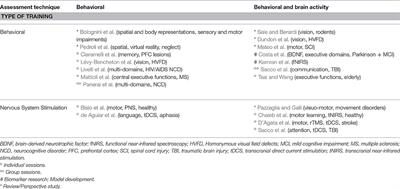EDITORIAL
Published on 20 Dec 2016
Editorial: Mind-Brain Plasticity and Rehabilitation of Cognitive Functions: What Techniques Have Been Proven Effective?

doi 10.3389/fnbeh.2016.00232
- 3,015 views
- 1 citation
33k
Total downloads
145k
Total views and downloads
EDITORIAL
Published on 20 Dec 2016

ORIGINAL RESEARCH
Published on 24 Jun 2016

ORIGINAL RESEARCH
Published on 31 Mar 2016

ORIGINAL RESEARCH
Published on 22 Mar 2016

CORRECTION
Published on 01 Mar 2016
ORIGINAL RESEARCH
Published on 29 Feb 2016

ORIGINAL RESEARCH
Published on 23 Feb 2016

CASE REPORT
Published on 05 Jan 2016
ORIGINAL RESEARCH
Published on 16 Nov 2015
REVIEW
Published on 27 Oct 2015
ORIGINAL RESEARCH
Published on 15 Sep 2015
REVIEW
Published on 11 Sep 2015